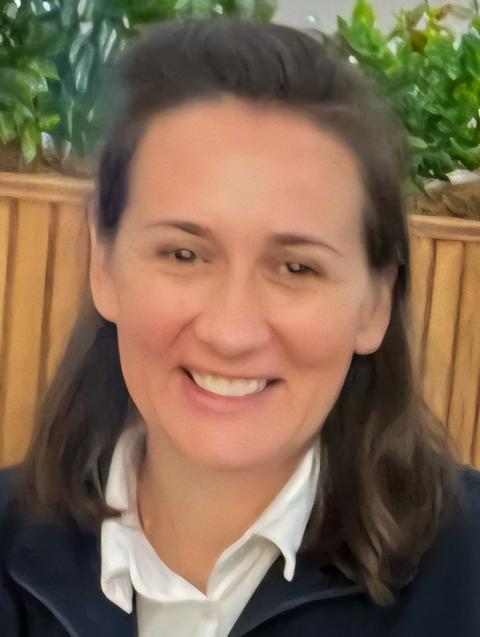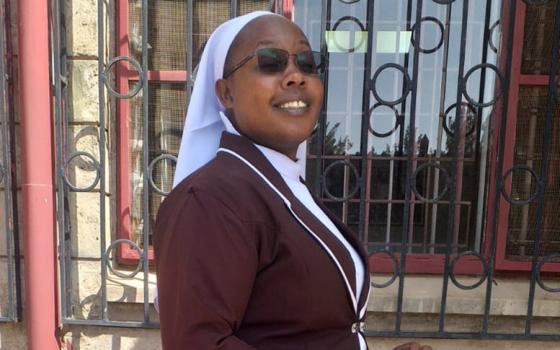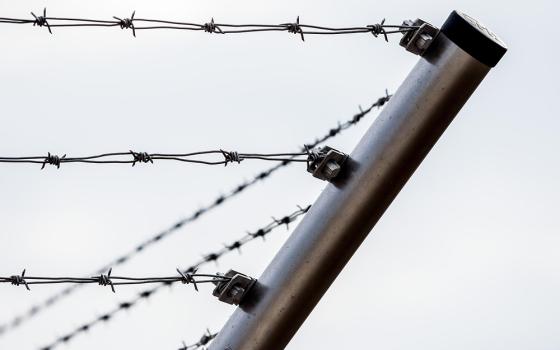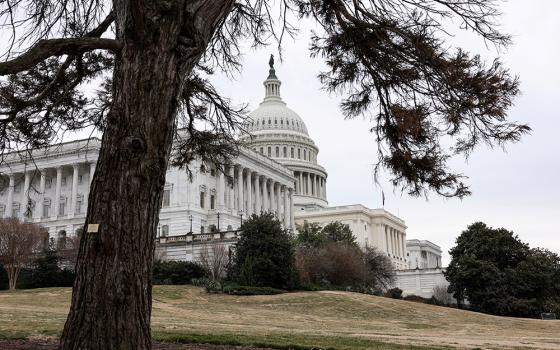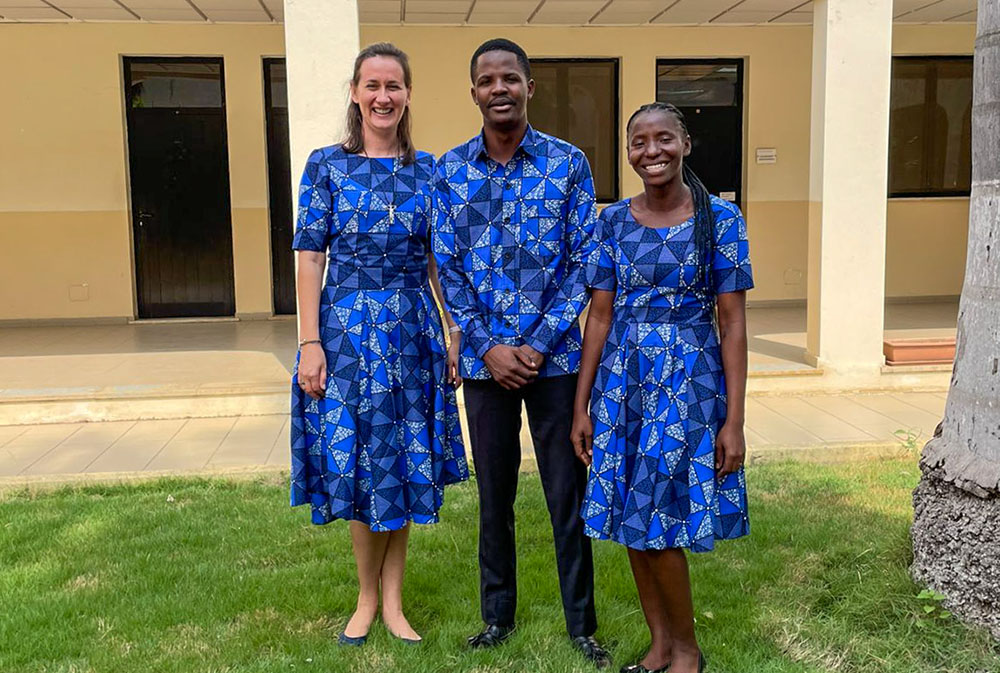
From left, Scalabrinian Sr. Carla Luisa Frey Bamberg, Christopher Joseph and Blessed Bucon, colleagues from the Episcopal Commission for the Pastoral Care of Migrants and Itinerant People, after a workshop in Luanda, Angola (Courtesy of Carla Luisa Frey Bamberg)
Human trafficking has become an urgent global talking point amid increasing economic desperation for millions of people on the African continent. Sr. Carla Luisa Frey Bamberg, a Scalabrinian nun working in Angola, finds herself on the front lines of this crisis.
Bamberg, who is originally from Brazil, leads the Angola Catholic Bishops' Episcopal Commission for the Pastoral Care of Migrants and Itinerant People, and is bearing witness to the scourge of human trafficking in a part of the world where she says children have been trafficked for cheap labor.
*A 2022 report from the International Labor Organization, the group Walk Free and the International Organization for Migration said that the global tally for people in modern slavery reached the 50 million mark, with Africa accounting for approximately 7 million of them.
It is within those grim numbers where Bamberg seeks to make a difference and find solutions to protect and rehabilitate vulnerable communities from what has become a global, well-organized crime syndicate.
Bamberg spoke to Global Sisters Report about her work.
GSR: What are some of the challenges you have observed that make it difficult to address human trafficking?
Bamberg: Some of the challenges faced in tackling trafficking are the lack of publicity on the subject, the fear of reporting it and the involvement of traditional authorities in this crime.
What measures are your office at the Episcopal Conference of Angola implementing to address human trafficking?
We are holding conferences on human rights in all dioceses, focusing on migrants and refugees, and raising awareness through training on the issue of human trafficking. We have invited all civil, religious and traditional authorities, as well as school principals and people who have contact with the wider public.
We have produced an explanatory video with specific cases of trafficking in Angola. This makes it easier to understand.
Are you working with countries in the region to combat human trafficking and what have been the challenges of this cross-border collaboration?
At the moment we are only working in Angola and São Tomé, not in other countries.
You are originally from Brazil. What attracted you to this type of apostolate in Africa?
Yes, I am of Brazilian nationality, but of Paraguayan origin. As a Scalabrinian missionary, I have the charism of caring for and zeal for the most vulnerable migrants, among whom we find trafficked people. That is why it is necessary to awaken society and the church so that we do not remain indifferent to this problem.
Advertisement
You mentioned earlier that communities still lack mechanisms to address human trafficking, such as imposing restrictions on the presence of traffickers. In your assessment, what impact has law enforcement had on protecting communities from human trafficking?
Law enforcement officers often do not have the essential elements to combat drug traffickers, they often become corrupt along the way, and their impact is very limited due to the lack of habit of reporting.
Is there any type of rehabilitation and post-traumatic care that rescued trafficking victims are receiving?
In Angola, there is no reception center for victims of human trafficking, nor is there personalized support. The only measure taken is by the Ministry of Justice to take identified cases to court and sentence proven cases.
Going forward, how can African countries collaborate to address what has become a human trafficking crisis amid the economic desperation of victims?
I believe that defense mechanisms, network support from various organizations that work within human rights, awareness-raising and public policies that combat this crime would help, especially reporting.
*This story has been edited to clarify an error introduced in editing.

